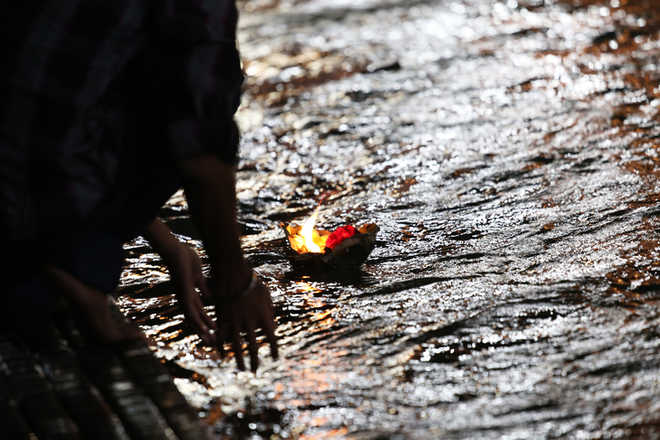
Sudhansu Mohanty
My mind often goes back to the evening I returned home after cremating my father. Before offering the mukhagni, I had stood Janus-faced, a part recalling my happy days with him, and the other, in a state of daze. I had made my way back in a stupor.
As I was readying to take the customary bath to mark the ritualistic cleansing, our plumber Karuna who lived in the outhouse arrived. ‘I feel orphaned, Babu was so loving and caring,’ he said, tears in eyes.
It is only when a person is not around, gone forever that we recall their nuanced approach to life and Karunakar was no exception. ‘Please come and repair the tap whenever you are able to find time,’ the plumber recalled, ‘and every time I went, not only would he force me to accept money for the work done, but also sweets too.’
We grew up when grace was the prevailing meme. With elders, it was never upfront: ‘Bapa, the lunch has been laid out’ or ‘Sir had asked me to remind him of the book’. For us children, all household help were bhai or mausa — never by their names would my parents call them. Courtesy prevailed in social and familial interactions.
This extended even to the deprived. Courtesy was a given, never mind. The famine of 1967-68 threw up serial beggars. At home, it was usual to keep a few kilos of rice and dal aside for them. I recall an incident at Burla in western Orissa. The gate was far off from our house and a shrunken mendicant had trooped in, his rickety two-year-old child in arm.
Father saw him and sensed they needed more than just a morsel of rice and dal. A doctor, he realised they were malnourished and needed care. He asked our driver to put the car in the portico and made them occupy our garage. The duo was fed and put on treatment for a few weeks. They left after being restored to well-being.
The car braving the blazing sun in the portico, I advised father it would lose its sheen, after our driver’s prompting. A beatific smile gracing his face, he told me about the import of our social responsibility to look after the indigent. I was chastened. My ear to the ground now, I hear him say, ‘Patients are God’s children on a worldly visit.’
We had a farmhouse close to Cuttack. I often accompanied him. It would be a long day in the sun, rain and humid conditions. By evening, I longed to get back home. But he was far from done. He still had his most important assignment — examining gratis the group of poor tribals huddled around him — minutely, patiently, in the light of a flickering kerosene lamp, and distributing the medicines he carried with him, for free.
More than formal education, this has been the profoundest learning of life. Sadly, this samskara is seldom seen today.



























